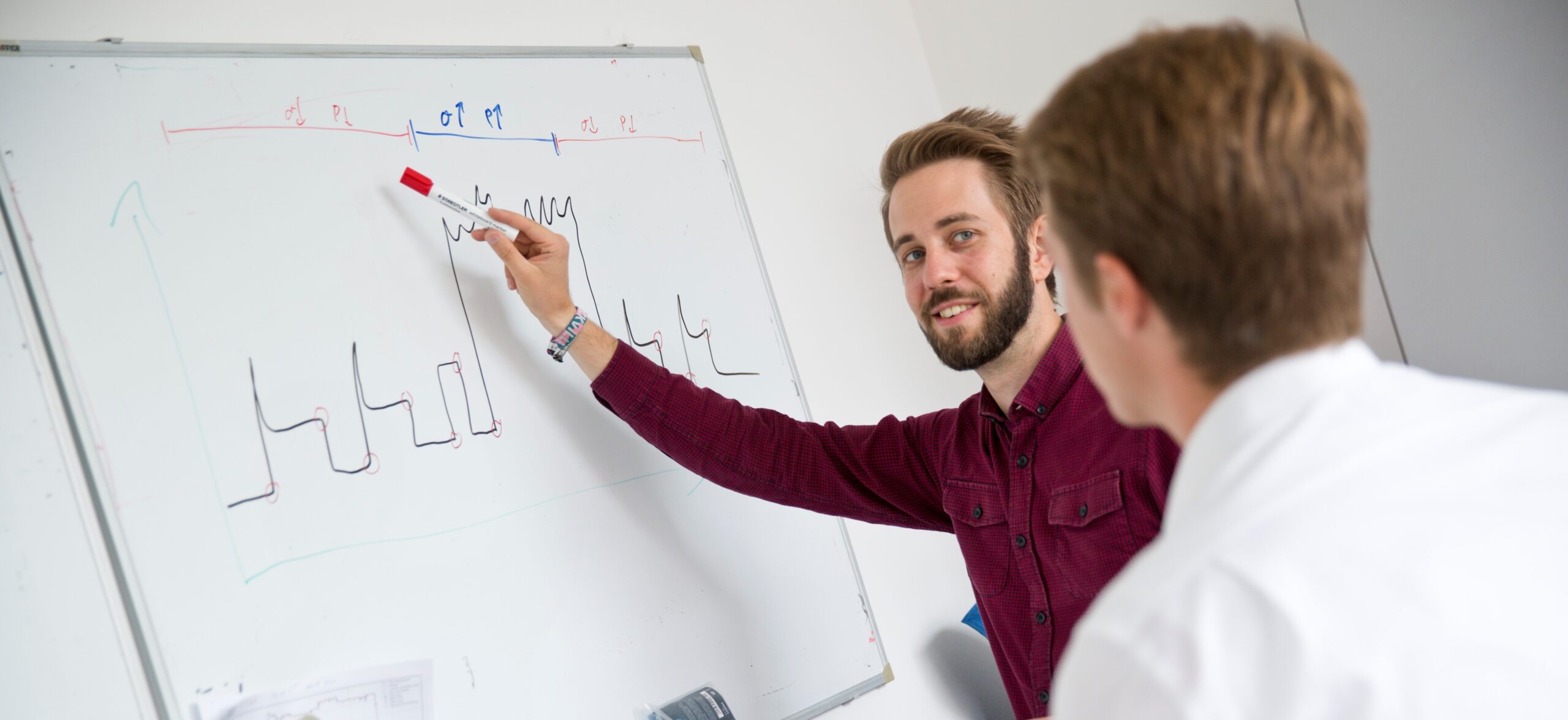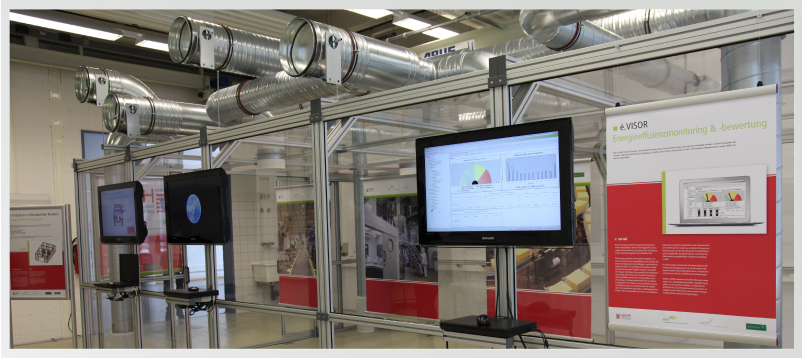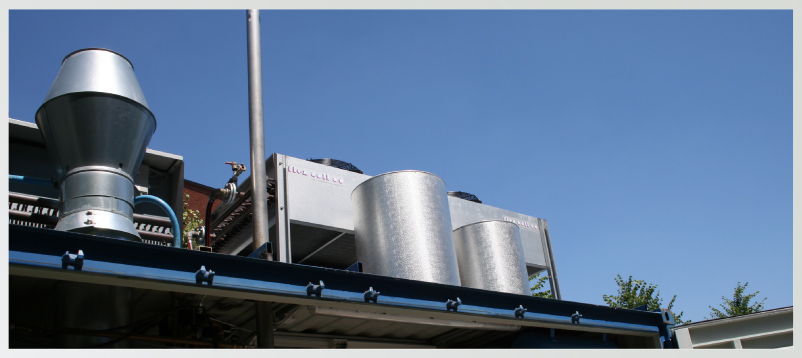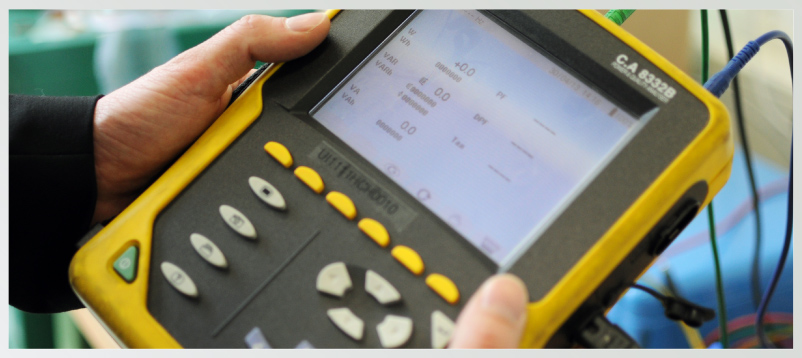Our Research at the upp
The Department of Sustainable Products and Processes (upp) at the University of Kassel has been working in the field of energy and resource efficiency, decentralised and renewable energies and the use of energy demand data in various research and industrial projects since 2002.
The research in this field is interdisciplinary with a holistic and global view of production buildings, products and processes over their entire life cycle. Technological progress is not only oriented towards economic benefits, but also equally takes into account social and environmental values in the sense of sustainable development. The research activities are divided into the following 4 thematic areas:
Rising energy and raw material costs and changing climatic conditions require considerable adaptation, especially for energy-intensive and emission-intensive production processes and companies. Due to the increasing number of extreme weather conditions, this applies equally to companies that have to manufacture precision products under defined room climate conditions.
The following problems and tasks, for example, are faced by companies:
- Rising and difficult to predict energy costs (and thus pressure for significant energy savings)
- Limiting or increasing the cost of greenhouse gas emissions through emissions trading
- Increased cooling demand due to rising ambient temperatures and increased hot weather periods
- Conversion to a hybrid energy supply as a mixture of decentralised and grid-connected energy
- Continuous increase in the share of renewable energies
- Digitized linking of information and data from production, logistics, quality, energy and costs in the sense of industry 4.0
These requirements cannot be met by individual considerations and measures. Rather, a systemic approach is necessary. For this purpose, the upp links the simulation models of machines and plants, their logistical linkage and the thermal behaviour of the factory building with continuously collected consumption data from monitoring systems. Only through this approach is a foresighted optimization of the planning and control of factories in the sense of sustainability and industry 4.0 possible.
All energy-related measures are based on collected energy data and comprehensive energy management, as required not least by DIN ISO 50001 and 50006. This includes the recording of material flows, production data and climatic influencing factors as well as the recording of essential energy flows, which requires the coupling of energy monitoring and production control systems.
In addition to the information used for billing purposes, continuously collected energy data offer many other possibilities for gaining knowledge. Using suitable methods such as pattern recognition, energy data can be analysed and made accessible to users in various fields of activity.
The upp researches algorithms that automatically generate key figures. Virtual measuring points and the combination of energy monitoring and simulation can significantly reduce the amount of measuring equipment required. Based on the key figures, processes, plants, lines and plants can then be compared with each other in order to automatically determine potential savings. In addition, energy monitoring forms the basis for energy-optimized operation of individual components or entire lines.
For project-related, temporary measurements, the department maintains extensive measuring equipment for various energy sources such as electricity, heat, refrigeration, compressed air and steam.
The expansion of renewable energies is a supporting pillar of the energy system transformation and poses new challenges for grid operators and manufacturing companies, as the high energy demand, the variety of energy media, the volatility and the high demands on supply security must be taken into account.
The various renewable forms of energy must be adapted accordingly for decentralised use in industry. Combined heat, power and cooling systems play a particularly important role in industrial applications. The aim here is to achieve the highest possible fuel efficiency through intelligent adaptation to energy requirements. The department Environmentally Friendly Products and Processes develops concepts and control systems for this efficient and decentralised energy supply.
In addition to decentralised energy supply, regional, national and global energy supply is increasingly based on volatile renewable forms of energy. Load management measures, in particular through sector coupling in industry and commerce, offer possibilities for making energy demand more flexible and thus adapt it to the volatile availability of renewable energies.
Measures for decentralised energy supply and load management often go hand in hand and complement each other. The upp department therefore develops decentralised energy supply concepts and evaluates them by means of simulation and testing on test stands. In addition, the load management potential in industry and commerce is determined by means of simulation and under consideration of the developed energy concepts.
The changed supply structure and automated recording of consumption are also creating increased demands and opportunities for new business models in the commercial, retail and service sectors. Energy suppliers in particular are looking for new opportunities in this market segment to retain existing customers with attractive offers or to win new ones.
To support this development, upp has been transferring its experience, knowledge and methods from the manufacturing industry to this market segment since 2014. The research work focuses on the further development of energy monitoring systems, the combination of energy monitoring and simulation and the development of data-based business models as the basis for future energy services. One methodological focus is the evaluation, evaluation and characterization of consumption data using automated methods of machine learning and pattern recognition. Examples are the use of consumption patterns for electricity and water needs in the care of elderly people or the benchmarking of fast food chains, supermarkets, DIY stores and bakeries.





